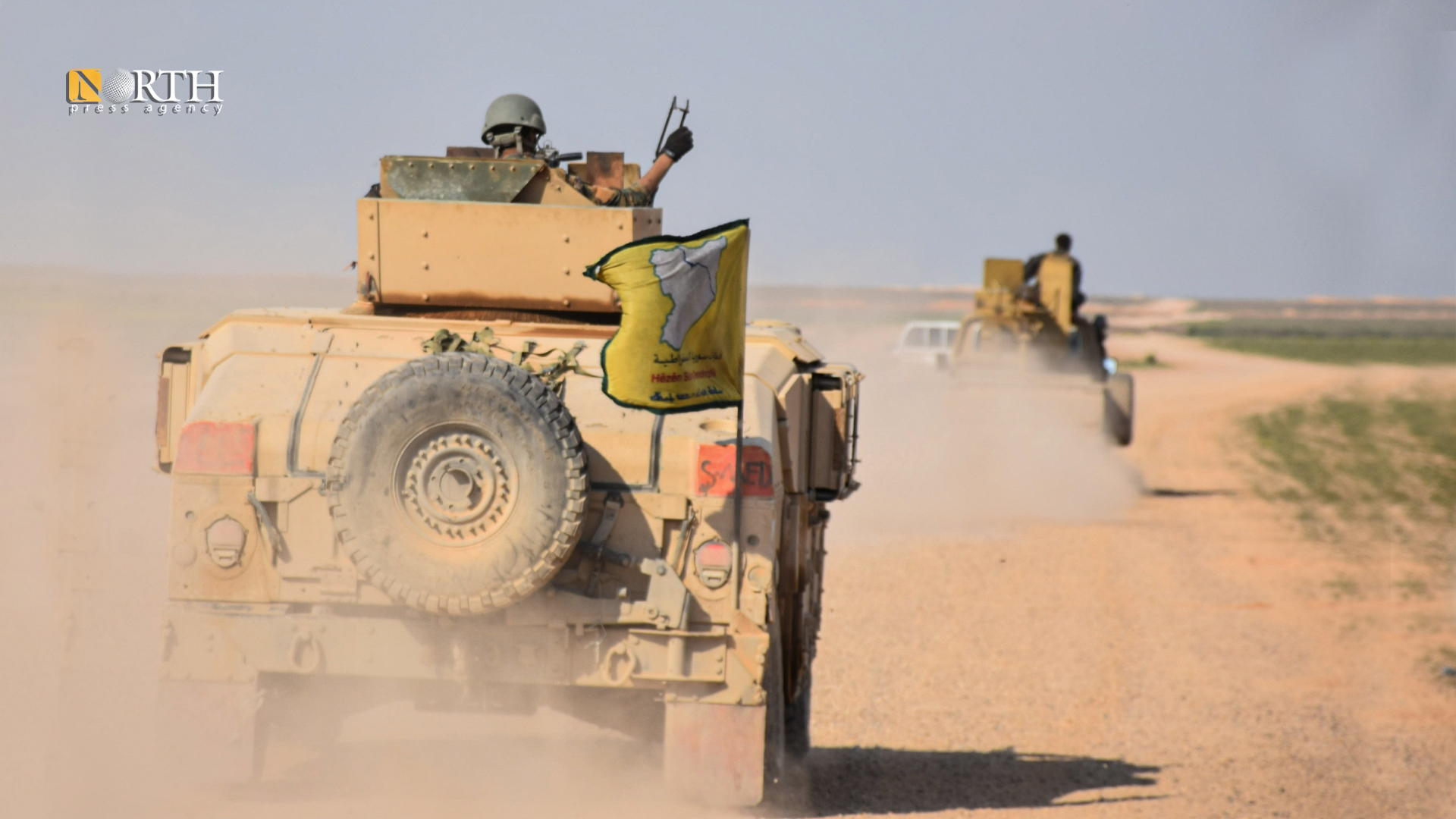ERBIL, KRG, Kurdistan (North Press) – An Iraqi political analyst calculates that the prison break in Hasakah governorate, northeast Syria, cannot be separated from the attacks the Islamic State Organization (ISIS) launches in Iraq.
Long border strip between Syria and Iraq requires that the two countries increase joint coordination to be able to defeat ISIS, Ihsan Shammari, An Iraqi political analyst who heads the Political Thinking Center in Iraqi capital, Baghdad, told North Press.
Shammari warned saying that Hasakah events would have an impact on the Iraqi territory, stressing that coordination between the two countries is wanted now more than any time.
ISIS militants launched, yesterday, an attack on an area in Diyala Governorate in a massacre that killed 11 Iraqi soldiers including an officer. Simultaneously, ISIS militants assaulted a prison in Syria’s Hasakah to break fellow ISIS inmates out from the prison which holds thousands of them. Many did attempted to escape.
On the back of the event, Mustafa Kadhimi, Iraqi Prime Minister, convened an emergency meeting for security and military leaders in headquarters of the Joint Operations Command to discuss the attack on Diyala.
An official statement released by Kadhimi stressed the necessity that such security breaches shall not be repeated and he instructed the intelligence forces and the national security to increase efforts.
“Iraq is too much concerned about the incidents in Hasakah because ISIS has focused its operations in the two countries, namely Syria and Iraq,” Shammari said.
The ISIS jailbreak attempt in Hasakah cannot be separated from the attacks on Diyala where several Iraqi soldiers lost their lives two days ago, Shammari added.
He noted, “this indicates that ISIS poses a great danger despite it has lost its ability to repeat the scenario of capturing several cities like in 2014. However, the attacks will stimulate them to launch more operations. Therefore, security plans should be put to undermine ISIS activity.”
Shammari believes that factors that help resurgence of ISIS are still available amid the political crisis and differences among political parties plus poor coordination and political impact on the security issue and the withdrawal of the US-led Global Coalition forces. All of the above reasons call for a security assessment in the region.
Meanwhile, Yahya Rasoul, Spokesman for the Commander-in-Chief of the Armed IraqiForces announced the arrest of six ISIS militants in a series of security operations in Nineveh, Baghdad, Kirkuk and Erbil.
“It is important to activate the intelligence efforts and implement preemptive operations against ISIS cells,” in a press conference, Rasoul said.
Prior to that, West Nineveh Operation Command, in Iraq, said ISIS escapees from Syrian prisons cannot cross Iraqi borders.
“Iraqi forces are on high alert to counter any sneaking attempt specially amid the major cooperation by the civilians,” Maj. Gen.Jabbar al-Taie, commander of West Nineveh Operations stated to the Iraqi stat-run news agency.
The existing coordination between Syria and Iraq has helped to police 610 km border (379-mile) and foiled many operations specially illegal crossing, Major General Tahsin al-Khafaji, spokesman for the Iraqi Joint Operations Command, said.
In a previous statement to North Press, al-Khafaji said Iraq has never stopped to launch any operations to police borders in coordination with the Syrian government in the areas under Iraq’s control.
In regard to the border under the control of the Syrian Democratic Forces (SDF), the Iraqi forces is coordinating with them through the Us-led Global Coalition.

